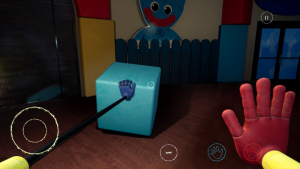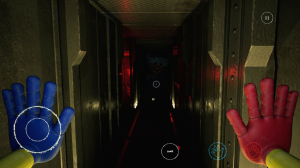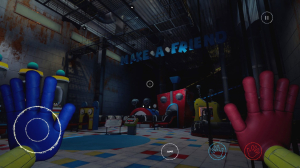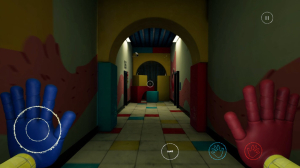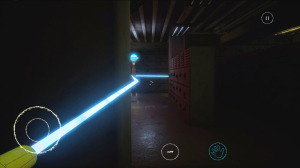Poppy Playtime
Few games manage to take the internet by storm while embodying the spirit of classic horror and puzzle genres as effortlessly as Poppy Playtime. Developed by MOB Games, this episodic adventure welcomes players into a derelict toy factory shrouded in secrets, nostalgia, and chilling danger. As an experienced gamer, stepping into the creaking halls and dimly lit corridors of Playtime Co. is like warping back to the greatest moments of indie horror while discovering a fresh, modern take. Yet, with so many ways to play, download, and modify this game, Poppy Playtime has become far more than just a casual fright fest — it’s now a playground for both casual thrill-seekers and modding veterans.
The World of Playtime Co.: Atmosphere and Storytelling
Poppy Playtime thrives on environmental storytelling, inviting players to explore the abandoned, vine-choked corridors of a once-beloved toy factory. The premise is simple: you, a former employee, receive a mysterious letter decades later, urging you to return. What begins as an innocent investigation quickly spirals into a nerve-racking scavenger hunt, punctuated by clever puzzles, obscure VHS tapes, and audio logs dripping with lore.
Where Poppy Playtime truly excels is its ability to weave nostalgia with mounting dread. Familiar objects — plush toys, posters, and crayon drawings — decorate the factory, creating a bizarre amalgam of childhood memories and new terrors. The environment is as much an antagonist as any other character, and you’ll rarely feel safe, even during moments of perceived calm. The sound design deserves special mention: distant clanking, haunting whispers, and the constant scurrying of unseen toys keep your nerves on edge.
Puzzle Design: The GrabPack’s Ingenious Role
At the core of the experience is the GrabPack, your indispensable tool for navigating both puzzles and threats. Two extendable hands — one red, one blue — allow players to interact with objects at a distance, bridge gaps, power up machinery, and open barred doors. This mechanic feels fresh and intuitive, encouraging creative problem-solving and offering a tactile sense of manipulation reminiscent of VR classics, even while played conventionally.
The puzzles themselves start out straightforward but ramp up in complexity and creativity by the end of the first chapter, and even more so in subsequent episodes. You’ll reroute power nodes, retrieve items from unreachable ledges, and interact with giant, mischievous toys. None of the puzzles feel out of place or unfair, and the thrill of discovery — from fixing crumbling conveyor belts to guiding energy beams — never wanes.
Chilling Foes and Memorable Set Pieces
What would a horror game be without a terrifying foe lurking in the shadows? Poppy Playtime introduces players to a lineup of freakish toy antagonists, with the instantly iconic Huggy Wuggy leading the pack. The way enemies are woven into set pieces is both smart and scary — jump scares are rarely cheap, and the buildup to each chase sequence is masterful. There’s an emphasis on suspense over simple frights, with the game often forcing you to listen and observe before making your move.
Boss encounters and chases use the limitations of the environment — such as crawlspaces and conveyor aisles — to ramp up the intensity. If you ever wondered if you could outrun a monstrous, smiling toy in a ventilation shaft, Poppy Playtime won’t just answer but make you sweat through the task.
Graphics, Performance, and Audio Excellence
Poppy Playtime’s visuals strike a careful balance between cartoonish charm and chilling unease. Models are exaggerated and colorful, lending the world an uncanny, almost dreamlike quality. Lighting is used masterfully to create stark contrasts, making each flickering bulb or shadowed alcove feel significant and suspicious. Character and environment design are bolstered by sharp textures and responsive animation.
Performance across supported platforms is generally robust, even on less powerful PCs or through cloud solutions. Occasional stutter may occur during intense chase sequences, but these moments rarely break immersion. Audio stands out as a highlight — from Huggy Wuggy’s rubbery footsteps echoing through deserted halls to the subtle drone of malfunctioning machinery, everything contributes to the atmosphere, ensuring that every moment is steeped in tension.
Community Mods, Cheats, and Replayability
For those who crave more after the first run, Poppy Playtime has a thriving modding scene. Mods range from simple visual tweaks to full gameplay overhauls — introducing new puzzles, changing enemy behaviors, or adding unsettling Easter eggs. While the developer doesn’t officially condone cheating, many players experiment with cheat codes or trainers to explore hidden areas or enable invincibility after completing the main story. These additions, while unofficial, help extend replay value and encourage community interaction.
There are also “unblocked” versions circulating online, designed for play on Chromebooks or within restricted environments. Some allow browser-based play, though performance can vary. While installing mods or using “unblocked” solutions, always prioritize trusted sources to avoid malware or compromised files.
Chapter Structure and Evolving Gameplay
Poppy Playtime is structured as an episodic adventure, with each chapter expanding the lore, introducing new mechanics, and increasing the stakes. This design decision benefits new players and series veterans alike: you’re never overwhelmed, but the world consistently grows more complex and compelling with each release. The regular drip-feed of problems to solve, characters to outwit, and secrets to uncover gives every session a sense of progression.
Returning to earlier areas with new abilities is encouraged, rewarding observant players with collectibles and hidden story bits. The episodic format also means you can play at your own pace; download and install each chapter as they become available, enjoying the cliffhanger endings and anticipation that come with each update.
Cross-Platform Availability and Ways to Play
A major draw of Poppy Playtime is its accessibility. Available for download on PC (Windows), with versions — both official and unofficial — for Mac, Android, and even web-based portals, the game is open to a broad audience. Cloud gaming solutions make it playable on unsupported devices, and “unblocked” versions can be found for school or public use, increasing reach.
The initial chapter of Poppy Playtime is often available for free, giving newcomers a bite-sized taste before investing in further episodes. Whether you want to mod the game, speedrun it, or simply immerse yourself in creepy exploration, there’s a version and method for everyone.
User Experience: Interface and Accessibility
From the get-go, Poppy Playtime offers a streamlined user interface with minimal menus and fuss. Starting up is quick, and in-game tutorials make GrabPack mechanics simple to grasp for both novice and experienced players. Accessibility settings are basic but sufficient; subtitles are available, and players can adjust graphics settings or remap controls for comfort.
For gamers who might not have access to high-powered gaming rigs, the game’s modest system requirements mean solid visuals and snappy performance on mid-range hardware. Android versions often see slightly reduced graphical fidelity, but the chilling vibe remains intact.
Final Verdict: Why Poppy Playtime is Worth Your Time
There’s a reason Poppy Playtime has become a reference point in modern horror. Its blend of nostalgia and innovation, gripping narrative, and constantly evolving gameplay set it apart from typical jump scare fare. Add in a robust selection of mods and wide platform availability, and it’s not just a game — it’s a community event for terrified explorers everywhere.
How to Download and Play Poppy Playtime on Different Platforms
Poppy Playtime is a horror-adventure game available for free (Chapter 1) on major gaming storefronts, with additional chapters as paid content. You’ll only need a PC or Android device for the core experience, though there are options for Mac, Chromebooks, and even browser-based versions with certain limitations.
- Windows PC: Fully available. You can download it via Steam; installation is straightforward.
- Mac: No official release, but some players run it on Mac using third-party wrappers, emulators, or tools like Wine.
- Chromebook: Not directly supported, but cloud gaming (NVIDIA GeForce Now) or web-based unblocked versions allow for play.
- PlayStation/Xbox: No official console version currently exists.
- Nintendo Switch: Not available at this time.
- Android: Available on the Google Play Store (often as a paid version or free for Chapter 1).
- iOS: Not currently available; use cloud gaming workarounds if needed.
To install, simply download from Steam for PC or Google Play for Android. For unsupported devices, cloud services or unofficial browser/modded versions may be an option, but proceed with caution.
Minimum system requirements for PC are an Intel Core i5, 8GB of RAM, and a GPU with 2GB VRAM. Android devices should have 3GB RAM and recent OS versions.
Using cheats and mods is common in the Poppy Playtime community, but official support is not provided, and using them online may limit access or cause instability.
Unblocked versions can be found for browser play in restricted environments; however, quality varies, and some network filters may still restrict access.
- Deep, atmospheric world-building with striking visuals and sound design
- Innovative GrabPack mechanic adds layers to both puzzles and exploration
- Rich, gradually-unfolding narrative with compelling lore and collectibles
- Strong replay value through episodic chapters and community mods
- Accessible on a broad array of platforms, including PC, Android, and cloud services
- Thriving community offering frequent updates, custom content, and active support
- Some chase sequences can cause performance dips on lower-end devices
- Puzzle difficulty can fluctuate, causing occasional frustration for newcomers
- Episodic distribution means waiting for future content and story resolution
